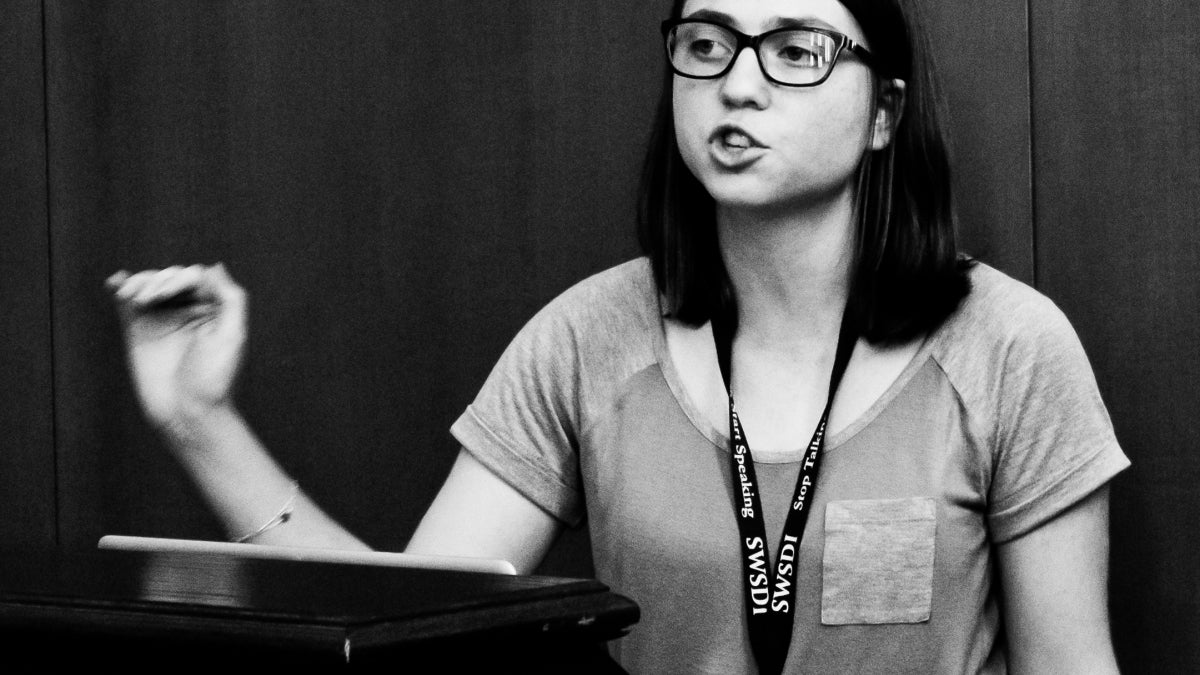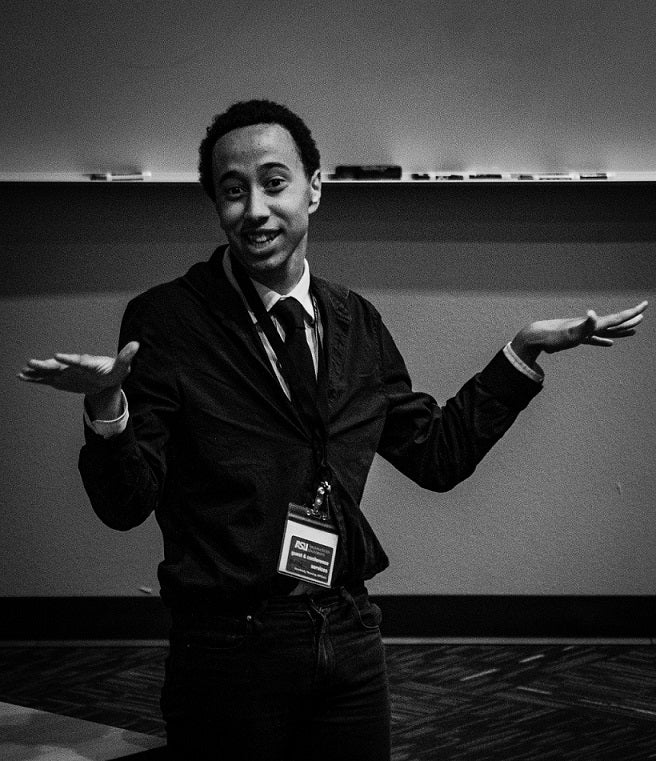High school students develop communication skills through speech and debate at ASU

A high school student delivering a speech at the Hugh Downs School Southwest Speech and Debate program held each summer at ASU.
More than 1,500 high school students from 17 states around the country gathered on the Tempe campus earlier this month to compete in Arizona State University's Hugh Downs School of Human Communication Invitational Speech and Debate Tournament, the largest such tournament in Arizona.
In addition to the students, the tournament also brought to campus more than 500 judges from around the country.
Representing 125 schools, the students are members of the National Speech and Debate Association (NSDA), formerly the National Forensic League.
NSDA Executive Director J. Scott Wunn says high school speech and debate empowers students to lead and change the world.
“Multiple studies demonstrate that speech and debate activities provide essential life skills, such as building confidence, improving communication, increasing critical thinking skills and better-preparing students for college," he said. "Speech and debate activities provide life skills vital to a young person’s success in the future."
Topics for the debates are decided by the association. This year they included restrictions on legal immigration to the U.S., antitrust regulations on technology giants and violent revolution in response to political oppression.
“By participating in tournaments, students figure out how to advocate for something they believe in,” said Adam Symonds, director of forensics at ASU. “Through the process of research, they learn what their opponents are saying about a topic and think about counter-arguments. If they don’t support those arguments, they can refine their approach to match their beliefs and values.”

A high school student participates in speech and debate at ASU.
The largest event of the tournament was Public Forum, which saw competition between 478 students across the three-day tournament. The topic was Latin America, and students voiced their arguments on whether or not the United States should end its economic sanctions against Venezuela.
Hamilton High School in Chandler, Arizona, walked away as the Sweepstakes Champion of the invitational, meaning they amassed more points during the preliminary rounds of competition than any other school. Sweepstakes awards are akin to trophies for total team performance during a preliminary gymnastics competition. Desert Vista High School in Phoenix placed second, BASIS Peoria High School placed third, Phoenix Country Day School placed fourth and Kent Denver High School in Colorado placed fifth.
ASU has a rich tradition of success in intercollegiate speech and debate dating back to 1885, when it was known as the Territorial Normal School at Tempe. The school’s forensics team has won hundreds of awards and has consistently finished among the top 20 teams in the nation every year in both speech and debate.
Because speech and debate are cross-disciplinary, Symonds said students who participate get a much broader education by researching topics outside of their primary fields of study.
“Being a member of the speech and debate team will help graduates stand out to employers,” said Linda Lederman, professor and director of the Hugh Downs School.
“Employers want to hire people who can competently express their ideas, work as part of a team, make presentations and advocate for their ideas," Lederman said. "Students who participate in forensics have gone into such diverse careers as acting, politics, government and the law. Communication is a fundamental skill that is essential for any career.”
Competition for the weekend took place in 17 events, including four types of debate: Congressional, Lincoln-Douglas, Policy and Public Forum. The students also participated in various forms of competitive public speaking, including interpretive events: Dramatic, Humorous, Poetry, Prose, Duo and Programmed Oral Interpretation (where they perform written works of others); limited preparation events, including Extemporaneous and Impromptu Speaking (where they have a limited timeframe to develop a speech after they are given a topic and two platform addresses they write themselves); Original Oratory; and Informative Speaking.
The Hugh Downs School of Human Communication also runs two speech and debate programs on the Tempe campus each summer, one for high school students, the other for college students.
Also managed by the ASU Forensics Team, the high school program brings more than 100 students from across the Southwest to attend the Southwest Speech and Debate program for two weeks of instruction from July 5–19. Interested parties can learn more at swsdi.org.
The Arizona Debate Institute, for college students, takes place July 20–31. Symonds says the Arizona Debate Program is geared toward novice or first or second-year participants in college policy debate, the only such instruction for college students in the country. Information on the Arizona Debate Institute is available at arizonadebateinstitute.com.
"ASU Forensics takes great pride in serving the high school and college speech and debate community by hosting these programs each year,” Symonds said. “Our commitment to the skills developed in forensics means that we want to offer the best opportunities we can possibly provide."